Word Recognition Elementary Phonics Worksheets for Ages 4-9
7 filtered results
-
From - To
Enhance your child's reading skills with our engaging Word Recognition Elementary Phonics Worksheets designed for ages 4-9. These worksheets are perfect for young learners, offering fun activities that help develop essential phonics and word recognition skills. Each worksheet is crafted to empower children as they sound out letters, recognize sight words, and practice reading in a stress-free environment. With colorful illustrations and interactive exercises, learning becomes an exciting adventure! Ideal for teachers or parents, our resources provide a comprehensive way to foster literacy, boost confidence, and ensure your child’s reading journey is both enjoyable and effective. Start building a strong foundation today!
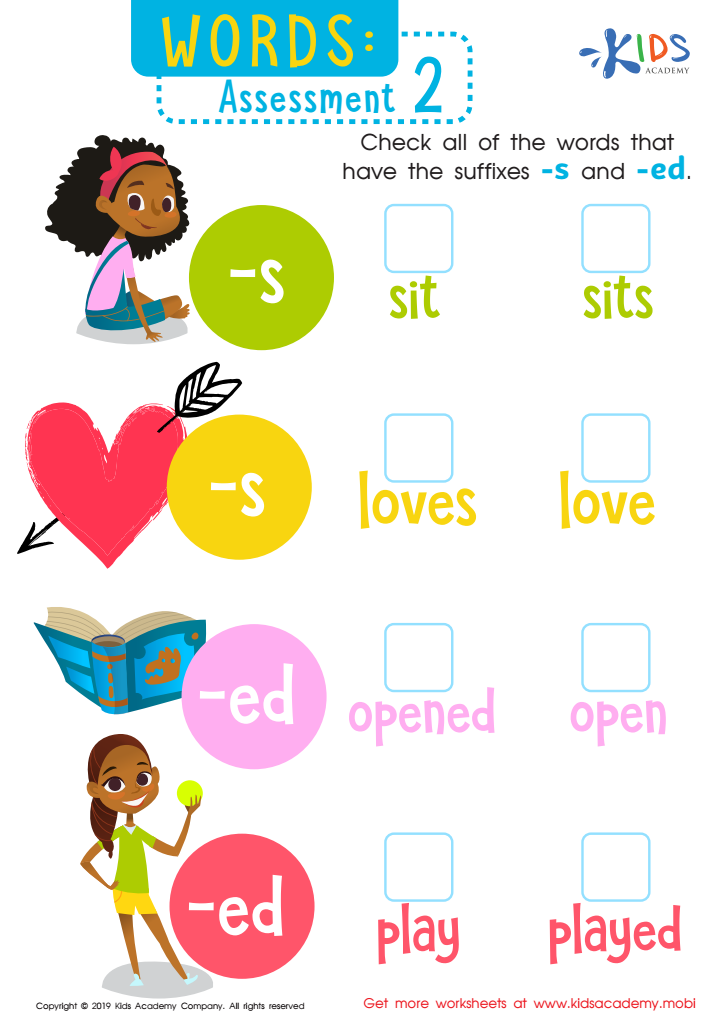

Words: Assessment 2 Worksheet
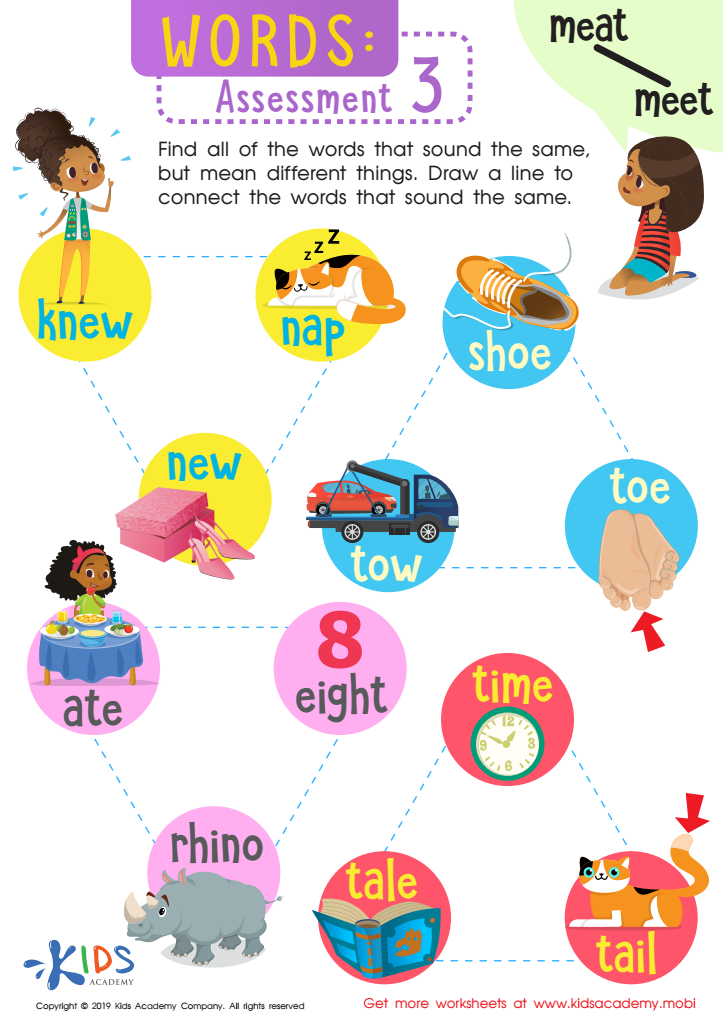

Words: Asessment 3 Worksheet
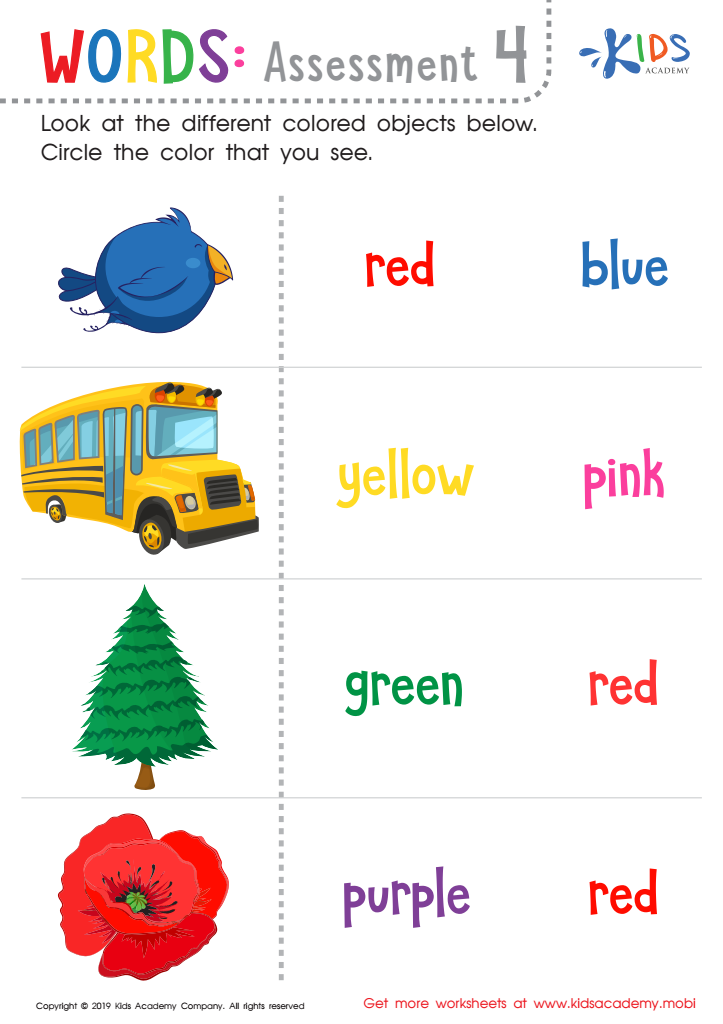

Words: Assessment 4 Worksheet
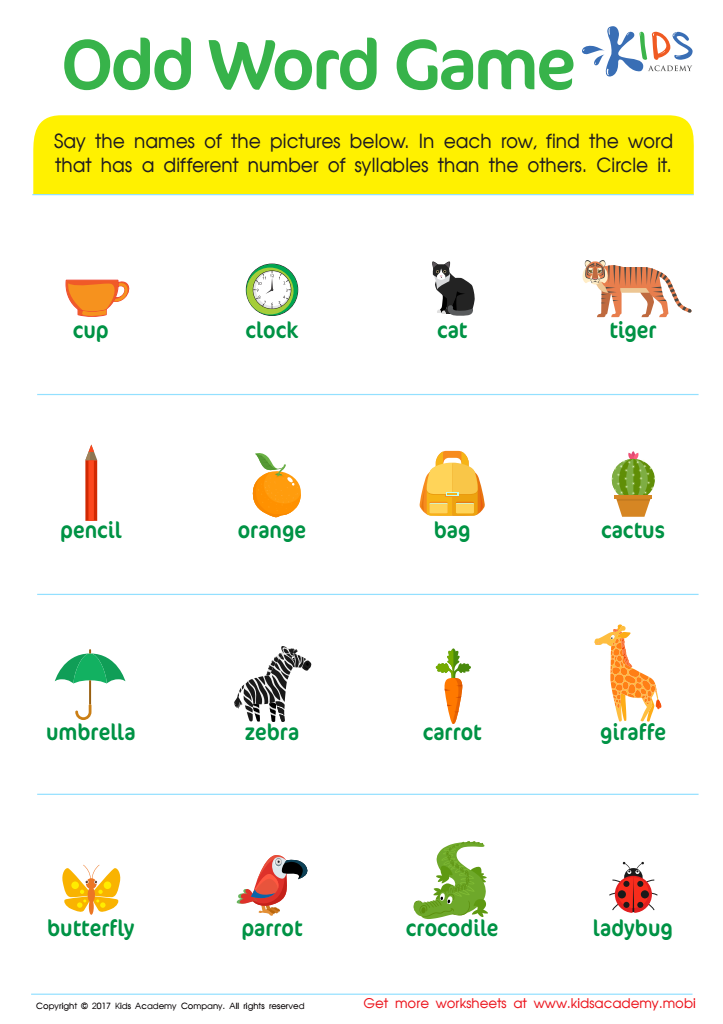

Count Syllables: Odd Word Game Worksheet
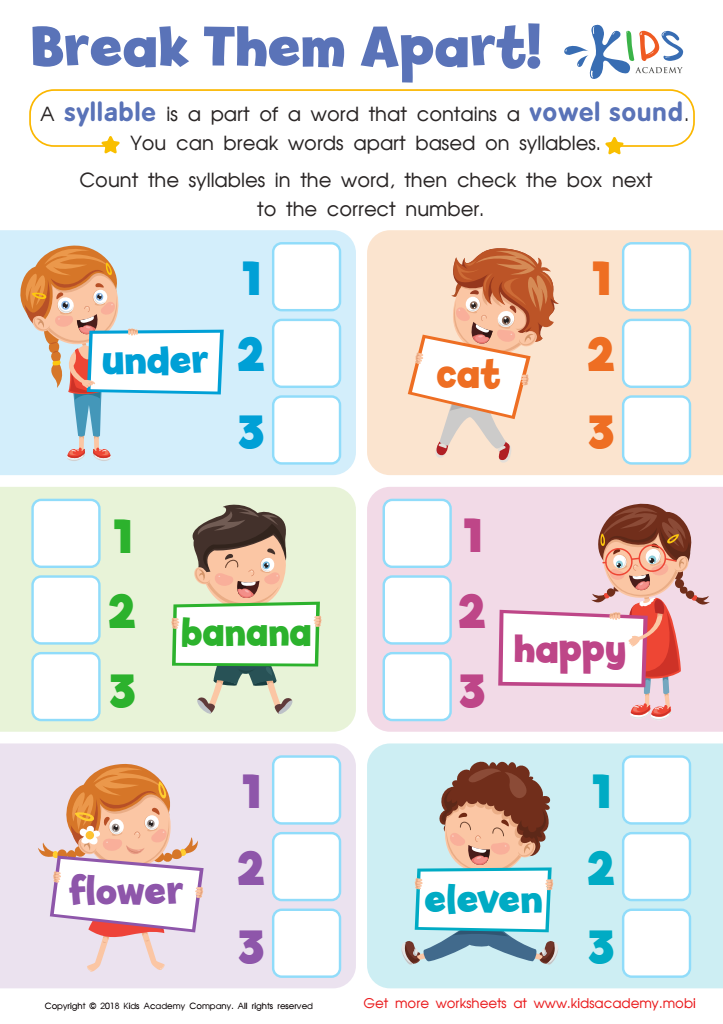

Reading: Break Them Apart Worksheet
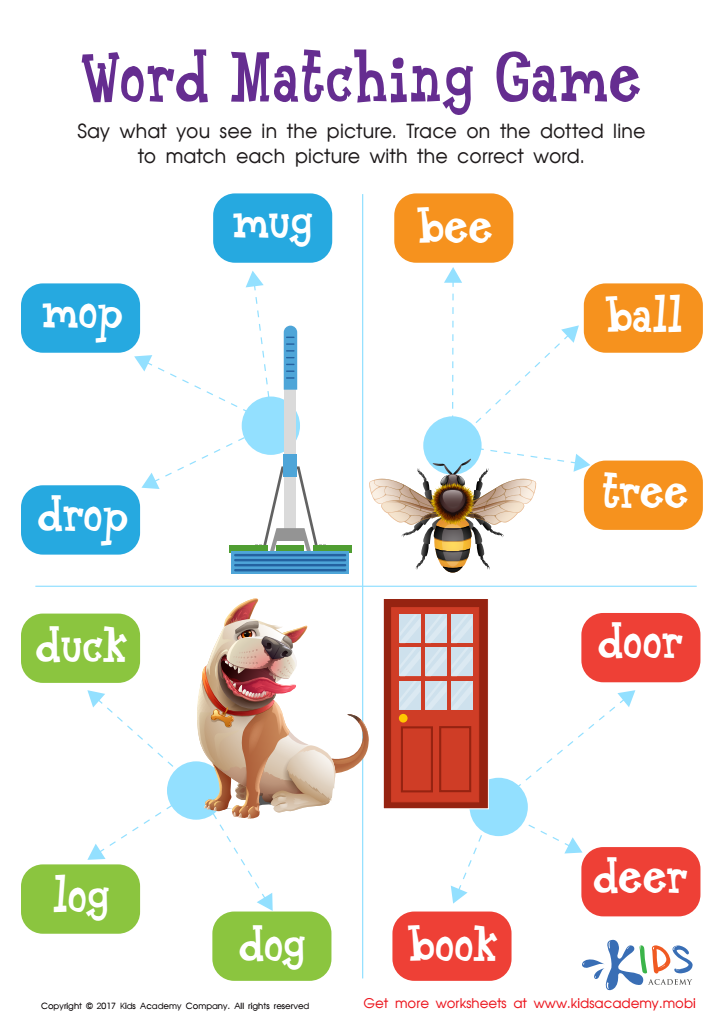

Word Matching Game Worksheet
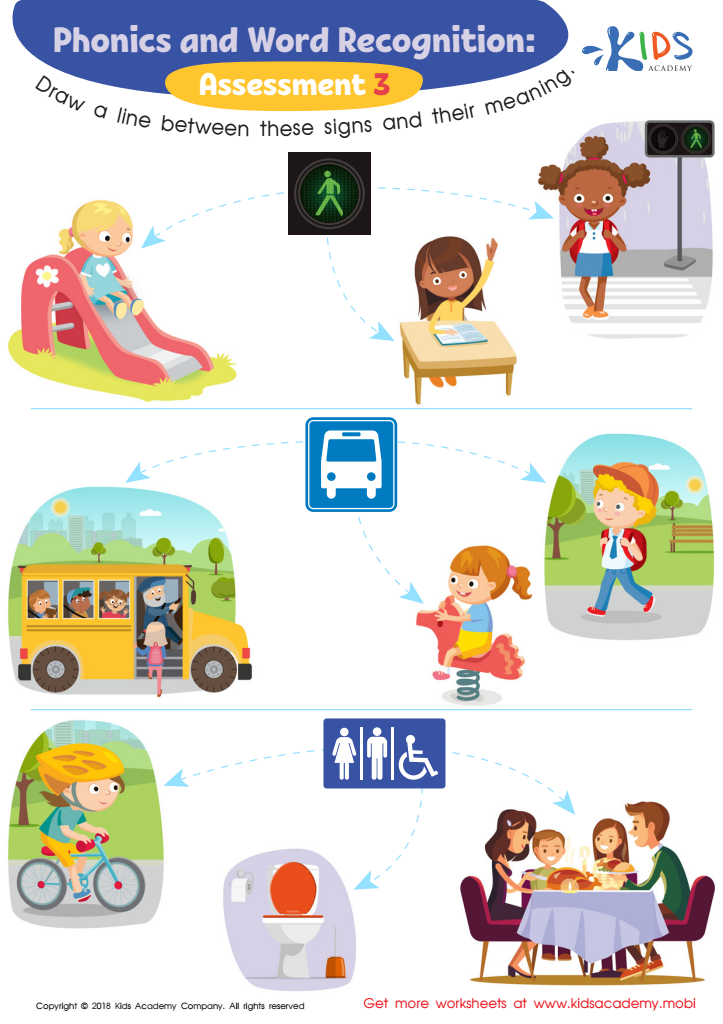

Phonological Awareness: Assessment 3 ELA Worksheet
Word recognition through elementary phonics is crucial for children aged 4-9, as it forms the foundation for reading proficiency and overall literacy development. At this age, children are at a critical stage where they acquire essential language skills. Phonics teaches the relationship between letters and sounds, helping kids decode words, recognize sight words, and develop a strong vocabulary. This skill set fosters independence in reading, allowing children to explore texts on their own, which in turn enhances comprehension.
Parents and teachers should care about word recognition because it directly influences a child’s academic success and self-esteem. Early readers exhibit greater confidence, motivating them to engage with books and learning materials persistently. In contrast, struggles with word recognition can lead to frustration, hindering their enthusiasm and creating learning gaps that may become more challenging to address later on.
Moreover, strong word recognition skills form the basis for writing and communicating effectively. By prioritizing phonics and word recognition, we provide children with the tools they need to navigate their educational journey successfully, cultivate a lifelong love of reading, and empower them to express their thoughts and ideas clearly. Investing this time and attention in early literacy is an investment in a child’s future.

 Assign to My Students
Assign to My Students
















